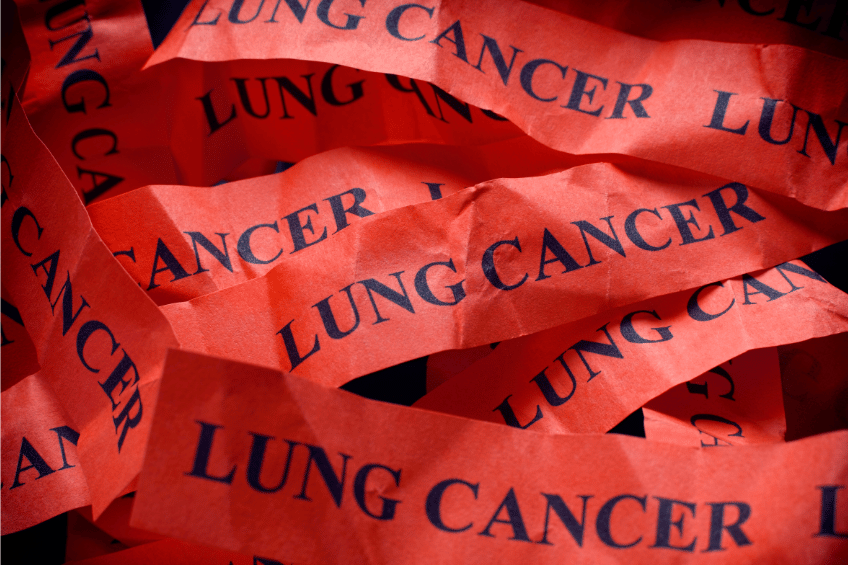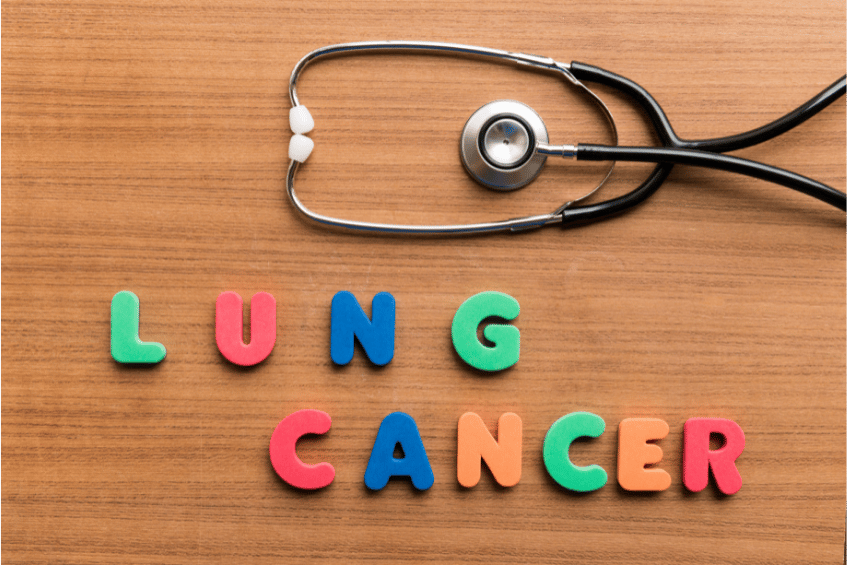What is lung cancer?
Lung cancer is a disease in which abnormal cells appear in the lung and start to multiply rapidly and uncontrollably. Usually it happens as a result of a genetic mutation or prolonged exposure to certain risk factors such as tobacco smoke, asbestos or air pollutants. The abnormal cells form a lump called a tumor. Cancerous tumors, otherwise called malignant tumors, have the potential to spread into nearby tissue replacing normal cells. Also, cancer cells can separate from the tumor in the lung and travel through the bloodstream or lymph vessels to other tissues and organs of the body, most often to lymph nodes, bones, liver, brain or adrenal glands. Such a cell-traveler is called metastasis.
The precise location of the tumor in the lung and its speed of growth vary in different types of lung cancer.
What are the types of lung cancer?
There are two main kinds of lung cancer which differ from each other in the type of cells affected. Non-small cell lung cancer accounts for 85% of all cases. It is an umbrella term for several types of lung cancers. It may begin in the outer part of the lungs from mucus-producing cells that form part of the lining of the lungs, in larger airways from thin flat cells, or be an undifferentiated carcinoma in which the cells are very immature and do not look like cells in the tissue of the lung. It is known that an undifferentiated cancer is more malignant.
Small cell lung cancer, previously known as oat cell carcinoma, makes up the rest 15%. It tends to start in the middle of the lungs and generally spreads more quickly. It occurs almost exclusively in heavy smokers.

Statistics
Lung cancer was a rare entity in the early 1900s but has since become far more prevalent. Now it is one of the most common cancers and the leading cause of cancer-related mortality in both men and women not only in the United States but also throughout the world. In 2020, more than 2 000 000 people were diagnosed. The average age at diagnosis is about 70. It is more common in men than in women.
Overview of symptoms
Lung cancer often produces no signs until the disease is well advanced. The symptoms present in both types of lung cancer are quite similar. Each person may have a different set of symptoms.

Some people have symptoms related to the lungs. The main ones include:
- a persistent new cough (lasting more than three weeks) or a change in a cough you’ve had for a long time,
- breathlessness,
- pain in the chest or shoulder,
- a recurring and long-lasting chest infection (for more than three weeks),
- coughing or spitting up blood.
